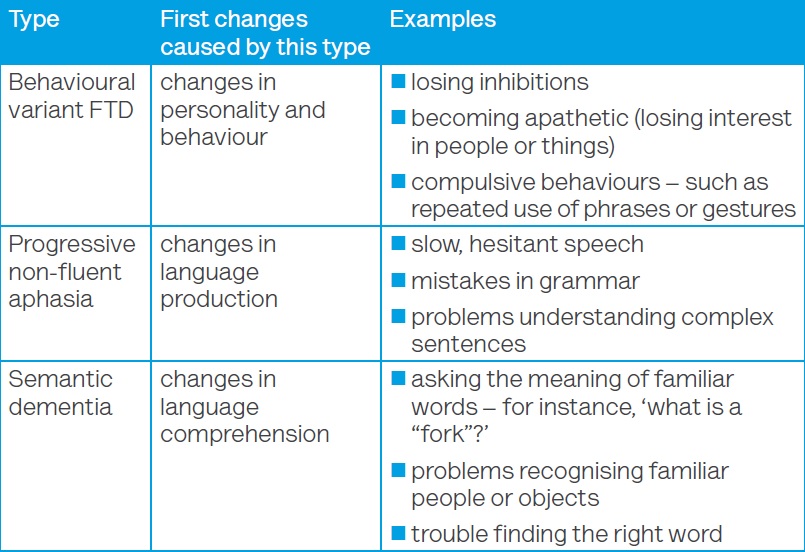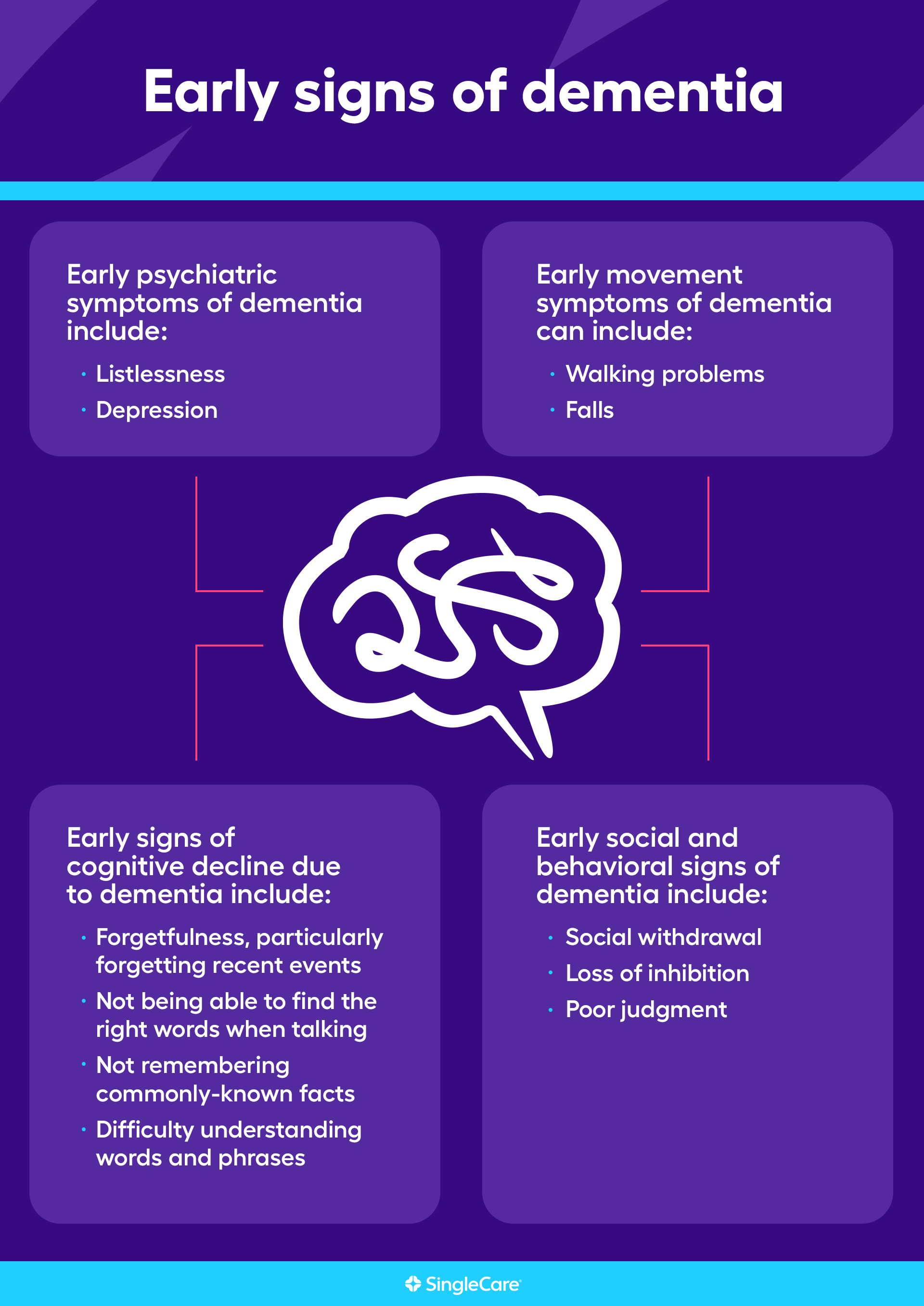What Are the Causes Behind Vascular Dementia?
What Are the Causes Behind Vascular Dementia?
Blog Article
Understanding the Impact of Dementia on Day-to-day Live and Caregiving
Dementia influences day-to-day life in extensive ways, influencing not just those identified but likewise their caregivers. As cognitive decrease progresses, you might notice adjustments in communication and regular that difficulty both events.
The Phases of Dementia and Their Impacts on Daily Life
As you navigate the trip of dementia, comprehending its stages can significantly impact how you manage day-to-day life. Dementia usually progresses through 3 major stages: early, middle, and late.
During the center phase, you'll experience extra visible cognitive decline. Daily jobs might become challenging, and maintaining your freedom may need modifications. Utilizing tips and streamlining your atmosphere can aid.
In the late stage, people usually need substantial assistance with day-to-day tasks. Planning for care becomes crucial, concentrating on convenience and quality of life. By understanding these phases, you're far better equipped to react proactively, guaranteeing you or your loved one can navigate the challenges with self-respect and grace.

Changes in Communication and Social Interaction
Exactly how do changes in communication affect your everyday communications as mental deterioration advances? As mental deterioration advancements, you may see that straightforward discussions become difficult. Words may escape you, or you may have a hard time to discover the best phrases. This can cause irritation for both you and your liked ones. Nonverbal signs, like gestures or faces, become increasingly important.
You might find it easier to link with these means as opposed to relying exclusively on talked language. Listening abilities can likewise change; you could discover it tougher to bear in mind or comply with discussions what was simply claimed (Early Onset Dementia). This can lead to misunderstandings or feelings of isolation
Encouraging persistence and producing an encouraging atmosphere can help. Taking part in tasks that foster connection, like songs or art, can improve social communications. Bear in mind, keeping partnerships is still possible; it's almost adapting to new methods of connecting.
Influence On Daily Routines and Activities
While steering daily regimens, you'll likely discover that jobs you when finished effortlessly ended up being more challenging as mental deterioration advances. Simple tasks like cooking, clothing, or even showering might require more effort and time. You could locate yourself neglecting steps in acquainted routines or battling to remember where you placed products. This can bring about frustration not simply for you, however additionally for those around you.
Adapting your atmosphere can assist; for circumstances, labeling products or using lists can streamline tasks. Engaging in recurring, organized tasks can likewise offer comfort and a sense of accomplishment. Remember, it's okay to ask for aid.
Behavioral and emotional Obstacles
Guiding through day-to-day regimens can cause not simply useful difficulties, however also emotional and behavioral ones. You could see modifications in state of mind, such as increased anxiety or disappointment, which can come from complication or trouble in completing tasks. As you navigate these minutes, it is crucial to acknowledge that your liked one may share their feelings with actions like frustration or withdrawal.
These psychological actions can be uncertain and might develop without caution, leaving you both feeling bewildered. You could discover that familiar environments or regimens can assist decrease anxiety, yet keeping perseverance comes to be substantial. It is necessary to confirm their feelings, even if you do not completely understand them.
The Function of Caregivers in Supporting People With Dementia
As a caretaker, you play a vital function in offering psychological support for individuals with mental deterioration. Establishing daily treatment routines can develop a sense of security and convenience, assisting to reduce their anxiety. By comprehending their demands and using reliable techniques, you can significantly boost their lifestyle.
Emotional Assistance Approaches
When taking care of someone with dementia, comprehending the emotional landscape is necessary for providing efficient assistance. You'll typically find that perseverance and compassion go a long method. Confirm their feelings; if they reveal complication or frustration, acknowledge it without disregarding their emotions. Straightforward gestures, like holding their hand or keeping eye contact, can create a sense of security. Attempt to take part in tasks that they delight in, as this can trigger pleasure and connection. Bear in mind to communicate plainly and gradually, utilizing a calm tone. Urge expression with music or art, which can serve as a powerful outlet. Eventually, do official statement not neglect to look after your very own emotional demands; looking for support for on your own can improve your capability to look after them.
Daily Treatment Routines
Developing daily care routines is necessary for supplying security and convenience to people with mental deterioration, as these routines can help in reducing complication and anxiousness. You can begin by laying out a consistent timetable for meals, tasks, and rest. This predictability aids your loved one feel extra secure and involved.
Incorporate acquainted tasks, like folding laundry or watering plants, which can evoke positive memories and foster a sense of success. Use visual cues, such as checklists or calendars, to direct them via the day.
Be versatile, though; adapt routines as required based on their mood or power degrees. Early Onset Dementia. Keep in mind, your patience and understanding are crucial in steering their changing requirements, ensuring they feel sustained and valued throughout their life
Developing a Safe and Comfy Living Atmosphere
Developing a comfy and risk-free living environment is essential for individuals with mental deterioration. You'll wish to make home safety alterations that minimize dangers and assure familiarity to supply a feeling of convenience. By focusing on these facets, you can help produce a space that supports both security and well-being.
Home Safety Modifications
As you browse the difficulties of dementia, making home safety and security alterations can greatly improve comfort and security. Label crucial locations, such as the restroom and kitchen, with clear indications to help with orientation. These alterations not only promote security however additionally encourage independence, enabling your enjoyed one to really feel more at convenience in their environment.
Convenience and Familiarity
After guaranteeing a risk-free setting with required modifications, promoting comfort and familiarity is important for individuals with mental deterioration. Beginning by personalizing their area. Use acquainted shades, decorations, and pictures that evoke delighted memories. A favorite covering or chair can provide a sense of security. Preserve a regular routine to assist them feel grounded and reduce anxiousness. Simple, familiar dishes can also produce a calming ambience. Keep paths clutter-free and clear to avoid confusion. Integrate soft lighting, as brilliant lights can be disorienting. Think about including calming aromas, like lavender, to promote relaxation. Engaging in acquainted activities, such as paying attention to music or horticulture, can enhance their feeling of belonging, making their living setting a real refuge.
Methods for Effective Caregiving and Support
While navigating the obstacles of dementia care can feel frustrating, implementing efficient methods can greatly enhance both the caregiver's and the individual's daily experience. Beginning by establishing a regimen; predictability helps in reducing anxiousness for both you and your enjoyed one. Use clear, hop over to these guys basic interaction-- direct concerns and short sentences can avoid confusion.

Do not forget to deal with on your own; routine breaks look at this now and get in touch with support groups. Sharing experiences with others in similar circumstances can supply important understandings and psychological alleviation.
Lastly, continue to be individual and versatile. Mental deterioration can bring unforeseeable modifications, so adapting your approach is necessary. By using these methods, you can foster a much more positive setting that profits both you and your liked one.
Regularly Asked Inquiries

What Are the Different Sorts Of Mental Deterioration?
You'll discover numerous types of mental deterioration, including Alzheimer's, vascular dementia, Lewy body mental deterioration, and frontotemporal dementia. Each type impacts memory and cognitive feature in a different way, so understanding the differences is necessary for correct medical diagnosis and treatment.
How Can I Assist Somebody With Early-Stage Mental Deterioration?
You can help a person with early-stage dementia by being patient, providing assistance, and encouraging them to involve in activities they take pleasure in. Maintaining regimens regular and maintaining open interaction can also make a substantial difference in their life.
Exist Financial Resources Available for Dementia Care?
Yes, there are monetary resources readily available for dementia care. You can explore federal government aid programs, nonprofit companies, and insurance alternatives. It's likewise sensible to seek advice from local agencies for particular sources customized to your circumstance.
What Legal Factors To Consider Should Caregivers Know?
As a caretaker, you ought to consider power of lawyer, healthcare proxies, and guardianship laws. It's necessary to recognize the legal civil liberties and obligations you hold, ensuring your loved one obtains suitable care and defense.
How Can I Manage Caretaker Tension?
You can manage caretaker anxiety by focusing on self-care, looking for support from groups or close friends, establishing sensible expectations, taking breaks, and exercising relaxation techniques. Keep in mind, your wellness matters equally as much as the individual you're caring for.
Recognizing the Impact of Dementia on Daily Life and Caregiving.
As you navigate the journey of mental deterioration, comprehending its stages can substantially influence how you take care of day-to-day life.While steering daily regimens, you'll likely observe that jobs you as soon as finished effortlessly come to be more difficult as dementia proceeds.Establishing everyday treatment routines is important for supplying stability and convenience to individuals with mental deterioration, as these routines can assist reduce confusion and anxiousness.While maneuvering the difficulties of mental deterioration care can really feel overwhelming, carrying out efficient approaches can considerably improve both the caretaker's and the individual's day-to-day experience.
Report this page